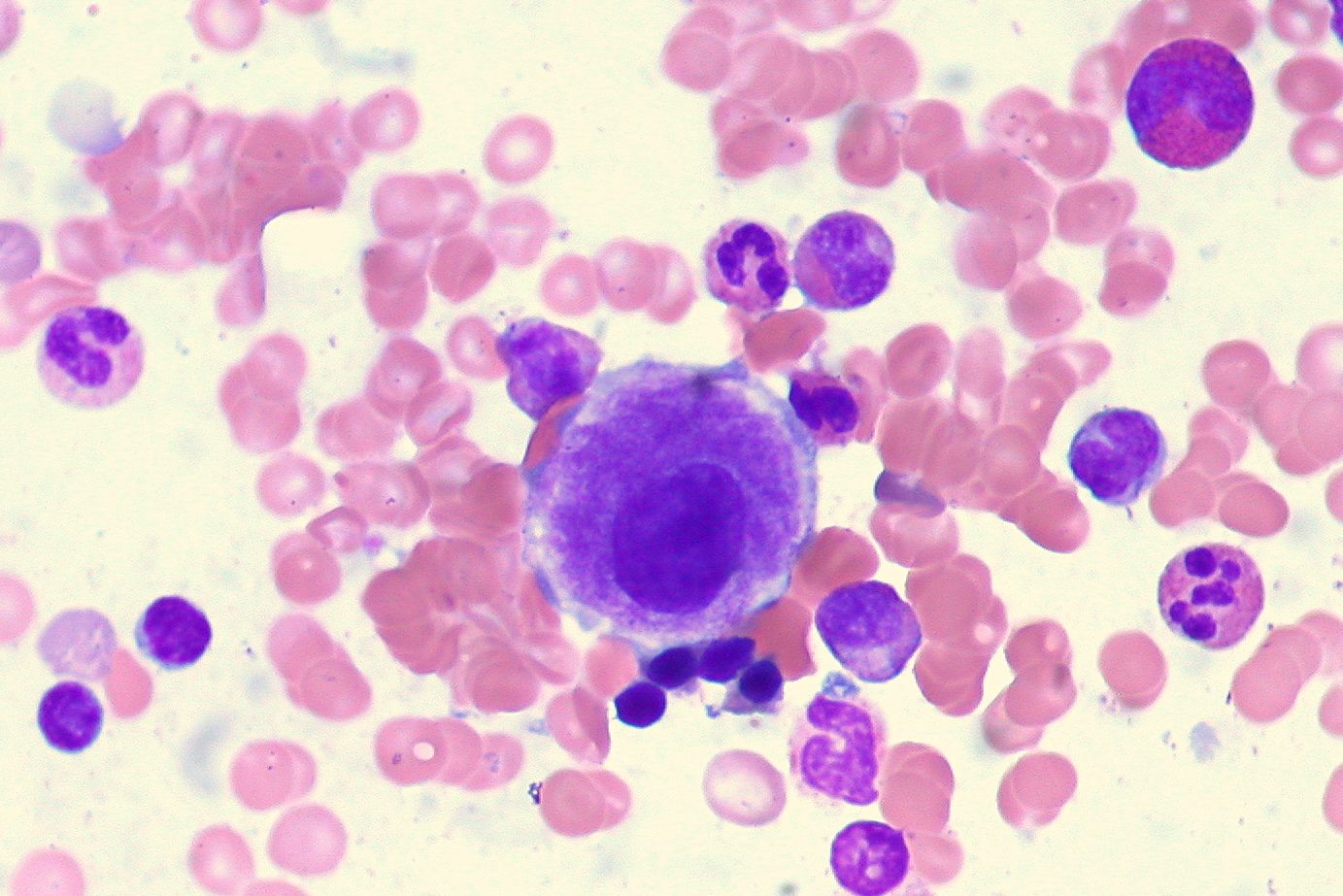Orca-T Yields Promising RFS/OS in Intermediate or High-Risk MDS
No patients with myelodysplastic syndrome have any grade 3 or higher acute graft-versus-host disease following treatment with Orca-T in a phase 1b study.
“Orca-T demonstrated promising results in this high-risk MDS patient population, including high RFS, low incidence of GVHD, and very high OS at 1 year,” according to Arpita Gandhi, MD, MS.

Treatment with Orca-T produced promising relapse-free survival (RFS), overall survival (OS), and graft-versus-host-disease (GRFS) in those with intermediate- to high-risk myelodysplastic syndrome (MDS), according to findings from a subgroup analysis of a phase 1b study presented during the 2023 American Society of Hematology (ASH) Annual Meeting and Exposition.1
At a median follow-up of 19.1 months (range, 6.3-32.2), results showed that the 1-year RFS rate with Orca-T was 94% (95% CI, 63%-99%), the 1-year modified GRFS was 75% (95% CI, 50%-96%), the 1-year non-relapse mortality rate was 0% (95% CI, 0%-0%), and the 1-year OS rate was 94% (95% CI, 63%-99%).
Additionally, Orca-T was successfully manufactured in one centralized GMP manufacturing facility for the 16 patients enrolled on the study, and was also distributed and infused throughout the United States in under a 72-hour vein-to-vein time.
“Orca-T demonstrated promising results in this high-risk MDS patient population, including high RFS, low incidence of GVHD, and very high OS at 1 year,” Arpita Gandhi, MD, MS, assistant professor of medicine, Division of Hematology/Medical Oncology, School of Medicine, Oregon Health and Science University, and coinvestigators wrote in the poster presented at the meeting.
Allogeneic hematopoietic cell transplant (alloHCT) is theorized to be a curative therapeutic approach for patients with MDS. At 1 year, the OS rate and RFS rate are approximately 65% and 69% in patients with MDS who underwent myeloablative conditioning, as seen in the RIMAC study.2
However, investigational treatments, such as the allogeneic, high-precision cell therapy Orca-T, could potentially reduce alloHCT-related toxicities, which could ultimately help improve outcomes for this patient population. Orca-T comprises both stem and immune cells derived from allogenic donors; its mechanism involves leveraging highly purified, polyclonal donor regulatory T cells in order to control alloreactive immune responses.
In the phase 1b trial, investigators explored the efficacy and safety of Orca-T in patients with intermediate- to high-risk MDS who were eligible for transplant, as per the 2017 International Expert Panel recommendations.
Sixteen patients were enrolled to receive Orca-T. All patients underwent myeloablative conditioning on day -10 to day -2. Patients underwent infusion of HSPCs and Tregs at 3 x 106 Treg/kg with a vein-to-vein time within 72 hours on day 0. On day +2, Tcon was infused at 3 x 106 T cells/kg, and single-agent tacrolimus was given at 5 to 10 ng/mL target on day +3. No methotrexate, PTCy, or other immunosuppressive therapies were given.
Historically, on day -1 in the standard therapy arm of alloHCT, patients receive tacrolimus at 5 to 10 ng/mL target, followed by infusion of the apheresis product at a cell dose of 108 to 109 T cells/kg; methotrexate prophylaxis is given on days +1, +3, +6, and +11.
Regarding baseline characteristics in the 16 patients, the median age was 59 years (range, 43-65) and 56% of patients were female. Patients either had a low (6%), moderate low (6%), moderate high (19%), high (44%), or very high (25%) Molecular International Prognostic Scoring System (IPSS-M) prognostic score. The baseline Hematopoietic Cell Transplantation-Specific Comorbidity Index was 0 (38%), 1 (19%), 2 (13%), 3 (19%), or 4 (13%). More than half of patients had an unrelated 8/8 HLA-matched donor relationship (56%).
Further findings showed that, at 1 year, no patients experienced grade 3 or higher acute graft-vs-host disease (GVHD). Two patients had moderate to severe chronic GVHD.
The authors noted that 1 patient who harbored a TP53 mutation and complex karyotype remained in complete response and had no active signs of acute or chronic GVHD at 500 days following alloHCT.
The multicenter, controlled, randomized, phase 3 trial is comparing Orca-T with standard of care in patients with MDS, acute myeloid leukemia, and acute lymphoblastic leukemia (NCT05316701).
References
- Gandhi A, Hoeg RT, Patel SS, et al. High disease-free survival in patients with high-risk MDS treated with Orca-T. Blood. 2023;142(suppl 1):2230. doi:10.1182/blood-2023-188994
- Alam N, Atenafu EG, Kuruvilla J, et al. Outcomes of patient with therapy-related AML/myelodysplastic syndrome (t-AML/MDS) following hematopoietic cell transplantation. Bone Marrow Transplant. 2015;50(9):1180-1186. doi:10.1038/bmt.2015.151
Newsletter
Stay up to date on recent advances in the multidisciplinary approach to cancer.